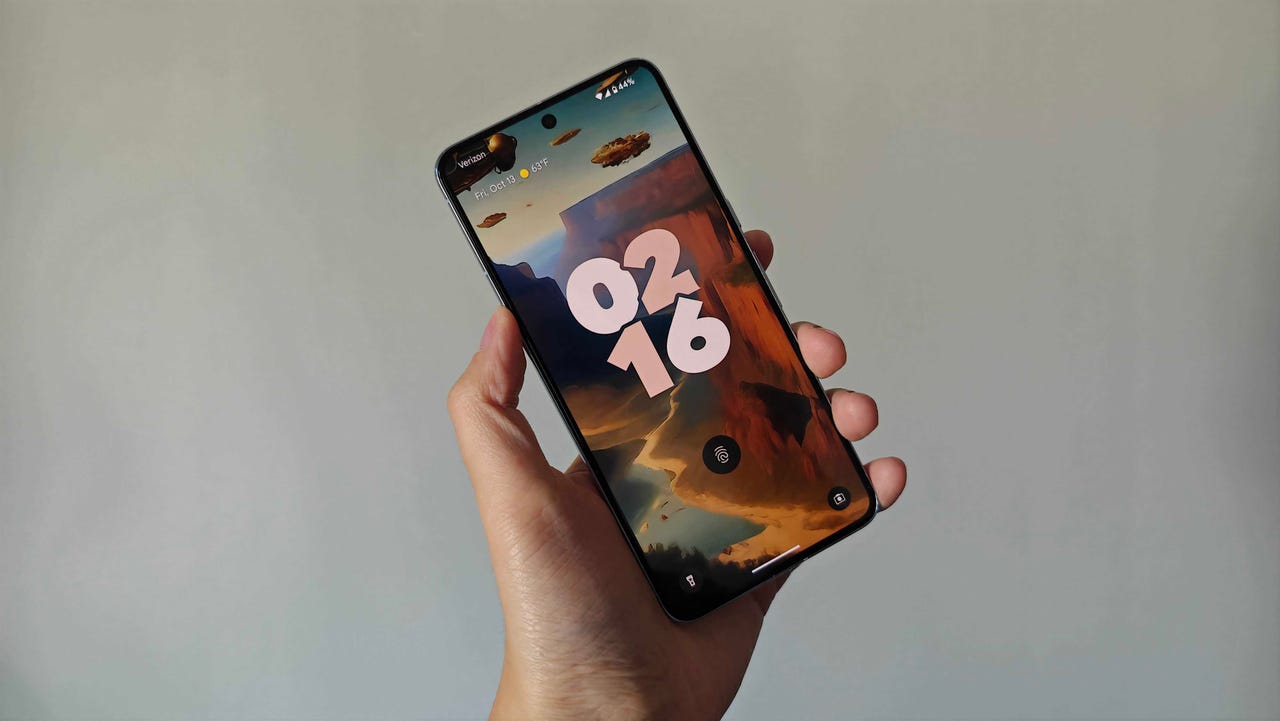'ZDNET Recommends': What exactly does it mean?
ZDNET's recommendations are based on many hours of testing, research, and comparison shopping. We gather data from the best available sources, including vendor and retailer listings as well as other relevant and independent reviews sites. And we pore over customer reviews to find out what matters to real people who already own and use the products and services we’re assessing.
When you click through from our site to a retailer and buy a product or service, we may earn affiliate commissions. This helps support our work, but does not affect what we cover or how, and it does not affect the price you pay. Neither ZDNET nor the author are compensated for these independent reviews. Indeed, we follow strict guidelines that ensure our editorial content is never influenced by advertisers.
ZDNET's editorial team writes on behalf of you, our reader. Our goal is to deliver the most accurate information and the most knowledgeable advice possible in order to help you make smarter buying decisions on tech gear and a wide array of products and services. Our editors thoroughly review and fact-check every article to ensure that our content meets the highest standards. If we have made an error or published misleading information, we will correct or clarify the article. If you see inaccuracies in our content, please report the mistake via this form.
Android 14's AI-generated wallpapers are super fun. Here's how to create them

When Google announced Android 14, a brand-new generative AI wallpaper tool was one of the biggest developments. Like any other AI image creator, users feed in a set of words or prompts, and the AI whips up a unique image based on the input.
Review: Google Pixel 8 Pro: This phone sold me on an AI-powered future
While this feature rolled out exclusively on the Google Pixel 8 and Pixel 8 Pro, it's now available on the Samsung S24 series. There are plans to make the tool available on other Android devices, but we don't know when. Of course, you can still use a third-party image generator to create wallpaper for your phone. It's not as practical as the built-in service, but just as functional.
As for the feature that comes with Android 14, the process is simple and fun. While you are limited to certain themes and keywords, and you can't generate an image with your own words, there are enough options for near-endless choices, and even entering the same prompt twice in a row creates unique wallpapers.
Here's how to use Android 14's AI wallpaper generator.
How to generate AI wallpapers on Android 14
What you'll need: For now, a Google Pixel 8, Google Pixel 8 Pro, Samsung S24, or Samsung S24+ running on Android 14. But ultimately, any device running Android 14.
1. Access your 'Wallpaper & style' settings
To generate an AI wallpaper, head to your 'Wallpaper & style' settings. You can get to this area through the Settings app or by tapping and holding on your wallpaper.
2. Choose 'More wallpapers' or 'Change wallpapers'
For Pixel devices, tap 'More wallpapers' and select 'AI wallpaper'.
Also: The first thing you should do after upgrading to Android 14
For Samsung devices, select 'Change wallpapers' and then choose 'Generative' under the Creative section. You'll see the basic wallpaper options here but you will want to go beyond the preset offerings. Tap 'More wallpapers'. There's a 'Create a Wallpaper' option at the top. Tap 'AI wallpaper' under that option.
3. Choose a theme
You'll have to give the AI a starting point. Choose one of the preset themes like imaginary, painting, night, terrain, mineral, volcanic, or x-ray. This theme sets the overall tone for your wallpaper. If you want to change it at any point, tap the drop-down menu at the top.
In just a few steps, Android 14 gives you a unique AI-created wallpaper.
4. Add keywords
The image generator will now give you a huge list of keywords you can add -- everything from 'spaceship' to 'castle' to 'flower'. The keywords are limited to each theme, so you will see certain keywords on one theme that you won't see on another. You can also change the overall color scheme here.
5. Tap 'Create wallpaper'
Once you have the keywords you want, tap 'Create wallpaper'. The AI will take a few seconds to present your options.
6. Choose your wallpaper
You'll be given four options based on the keywords and theme you entered. You can swipe to see them all, and if there's one you like, tap the checkmark on the top right to automatically make it your wallpaper, lock screen, or both.
Also: 3 ways Android 14 breathed new life into my Pixel 6
The color pallet for your phone will automatically adjust to the wallpaper you select. If you don't like any of the creations, start over. You'll get different images even if you enter the same prompts again.
7. Use 'Inspire me' to generate a random wallpaper
If you're not feeling too creative or want to trust the AI gods to pick your wallpaper, click 'Inspire me'. When you choose that option, AI generates a wallpaper at random.
FAQs
Are AI wallpapers on Android 14 completely customizable?
Unlike other AI image creators, you don't have the option to enter your phrases and keywords. Android 14 offers about a dozen themes to start, and once you've selected one, a large list of keywords to inspire the image. While the approach isn't 100% customizable, there are enough options to keep everyone intrigued.
What Android devices support the AI wallpaper feature?
Google limits the AI wallpaper generation feature to the new Pixel 8 and Pixel 8 Pro phones. But the feature will roll out to other devices and should ultimately be available on any device operating Android 14.
